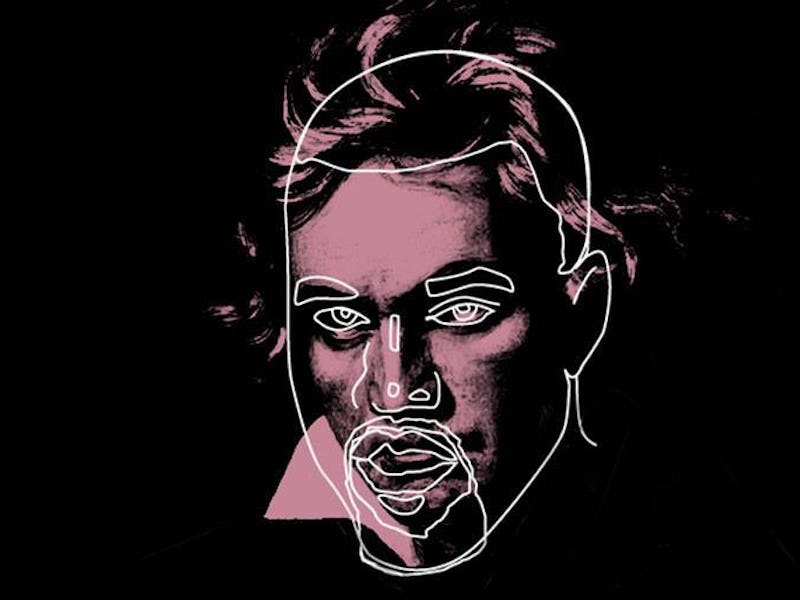The Kanye West Beethoven Mash-Up 'Yeethoven' Is A Mess We Can Learn From
Saturday's L.A. concert was a bad idea on paper and realization, though we can't fault them for trying.

There is a problem among classical music institutions: figuring out how to stay relevant artistically without losing ticket sales for businesses that are typically lagging financially. One of the recent issues which the classical music and pops orchestra world has had to address is how to deal with hip-hop, the art form currently at the vanguard of musical innovation. It took years, but classical ensembles are realizing they have to address it somehow in their programming: there’s been a marked rise on rap and orchestral collaborations in the last three years or so. With many professional institutions, it’s only begrudgingly: a way of making a stab at broadening their audience and bringing in a reasonable profit.
Recently, a collaboration cropped up which was significantly more illogical and conceptually obscure than, say, Kendrick Lamar’s performance with the National Symphony last fall, which stands as the most artistically successful and significant rap/symphony team-up to date. It’s “Yeethoven,” a concert organized by young musicians paying tribute to Kanye Wests 2013 album Yeezus and the works of the most widely influential musical figures of all time: 19th-century Classical/Romantic composer Ludwig van Beethoven. The concert took place last Saturday in Los Angeles, and you can hear the whole thing below:
One can see how a music history devotee — or if you want to be less forgiving: nerd — might think the “Yeethoven” concept was a clever and/or constructive idea. Beethoven is Kanye’s first artistic ancestor: the controversial star who pioneered the idea of making the form and affect of music a distinctly personal statement, moving away from clear formulas, classifications, and business protocol to create his own musical universe. He also foregrounded the composer as a central personality who his financial benefactors had to defer to: a larger-than-life figure who had complete control over his musical product. Kanye revels in refusing to separate his cult of personality from his musical language, and working on the same wide-scale level of personal, high-dramatic expression that Beethoven did.
On the other hand, it seems sadly typical of a classical music institution to pick Kanye’s most self-consciously “serious” — and a three-year-old album — to use as source material for their project. The over-intellectualization going on behind the scenes is all too palpable. Also, by making this a “mash-up” concert, the orchestra is implicitly tapping into a musical trend which crested roughly eight years ago, with the post-Girl Talk “I’m not a DJ” collage-music craze. The project, in too many ways, seems irrelevant, an idea concocted at a drunken post-master’s-exams party among music conservatory students.
Then again, rap music has been around for about 40 years, and orchestras are just starting to deal with it. It took them a similar amount of time to mount crossover concerts with jazz, and for explicitly jazz-influenced classical music to be programmed. So yes, the “Yeethoven” concept may seem comically out-of-touch, but on the classical-music-world scale, its basically as hip as this whole thing gets. And it probably has more foresight to it than Atlanta rap group Migos’ Trap Symphony videos, though it’s nice to see classical musicians acknowledging that only Conscious and Challenging rap of a certain ilk deserves strings and woodwinds behind it.
Nonetheless, it’s a sad example of the never-the-twain-shall-meet issue when it comes to bridging the hip-hop and classical/avant-garde communities. Like cultural capital finding its way to certain foreign countries, there’s usually a long delay when it comes to the art music world getting interested in a particular pop phenomenon. Usually, it’s better when ensembles come to a hip-hop artist on their own terms — as with the Kendrick show — rather than attempting a true collaboration, or a more out-there concept. Kanye’s own new-classical forays with contemporary composer Caroline Shaw are, of course, far more interesting than “Yeethoven,” reinterpreting and wringing something new out of pre-existing material, rather than juxtaposing it for not enough of an apparent reason.
One hopes that more real, equal collaborations will eventually find a way. But for now, it seems orchestras are still usually better erring on the side of ceding creative control to rap artists, rather than imposing their own creative agenda on their musical source material in crude ways. It’s a safer bet. One should applaud “Yeethoven”’s masterminds for trying, but hopefully we can learn an important lesson from its relative ineffectiveness.